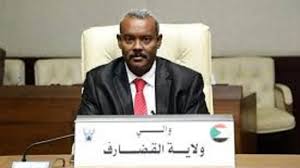By : Admin
The Governor of Al-Gadarif state has appealed the international community and humanitarian organizations for rapid intervention in providing the necessary support to the Ethiopian refugees in the state of Al-Gedaref.
Dr Suleiman Ali Muhammad Musa the Governor of Al-Gadarif, said – during a press conference that the response has so far been slow from the organizations and the international community, and does not rise to the volume of flows into the state of Gedaref, indicating that the total number of refugees in the state of Gedaref has reached (15,500) refugees, indicating that two thousand five hundred have been deported to Umm Rakuba camp in the locality of al-Qallabat al-Sharqiya, while village number Eight is hosting thirteen thousand refugees in Al-Fasqa. Nine thousand of them were children, two thousand seven hundred were women, and one thousand three hundred were men.
The Governor confirmed the allocation of another camp in the Al-Tanideba area, Al-Mafaza locality, to accommodate the refugees, whose number exceeds the Umm Rakuba camp.
The governor said that these large inflows will negatively affect the state, economically, socially, and healthily, in addition to services.
The governor expected more influxes to enter the state, stressing that health precautions would be put in the village number Eight to avoid outbreak of epidemics diseases.
The governor called on the international community and humanitarian organizations to play their role in providing support to Ethiopian refugees who exceed the state’s modest capabilities in light of the current economic conditions.
Observers believe that the situation in the state of Al- Gadarif may lead to a humanitarian disaster. Tariq Othman, a political analyst whose roots from Eastern Sudan and his residence at the city of Al-Gedaref, sees “the arrival of the displaced in large quantities on light of their arrival from an area located within the AIDS belt, with the outbreak of the Corona pandemic, this may lead to the spread of these diseases in the region in addition of the weak response from the organizations working in this regard” added Tarig.
Tarig told Nation that “The repercussions of the Ethiopian war are not limited only to the humanitarian side in Sudan, but also to the economic aspect, especially agricultural activity, especially on the economic side, due to the fact that these days the border areas witness the harvest of agricultural crops, the repercussions of the war in the region of Tigraya for us as Sudanese, and for farmers in particular. It is the full effect of the work related to the harvest and the production of maize and sesame”.
“The Sudanese farmers used to depend on Ethiopian labor for harvesting, a service that they lacked with the development of conditions along the border strip. In addition to the fact that the workers are mostly are Amhara tribes, and their presence in the same area, with the Tigraya, may transfer the battles to the refugee camps. “he concluded








